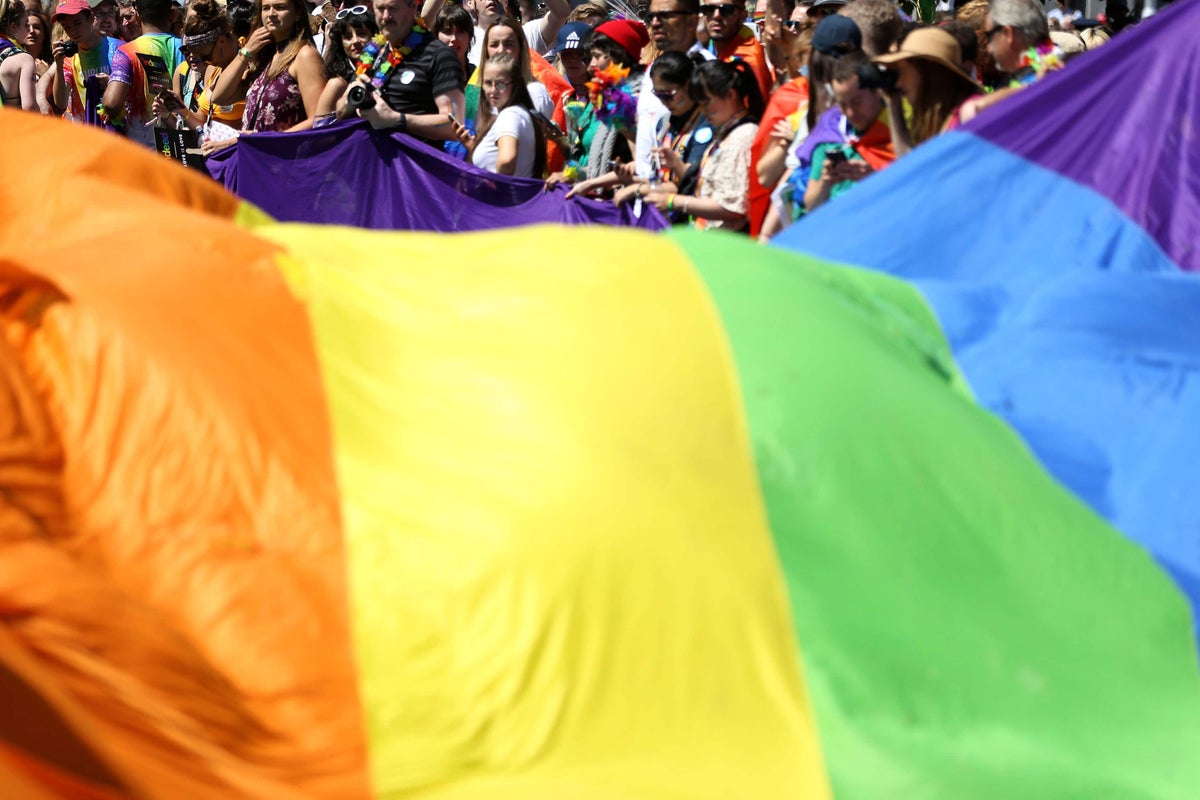
Five years have passed since the Government announced its intention to ban conversion therapies.
Here is what has happened since:
– What is conversion therapy?
The UK Council for Psychotherapy defines it as an umbrella term for “therapy that is based on the assumption that any sexual orientation or gender identity is inherently preferable to any other, and attempts to change or suppress someone’s sexual orientation or gender identity on that basis”.
It said conversion therapy is sometimes referred to as “reparative therapy, gay cure therapy or sexual orientation and gender change efforts”, and that all major therapy professional bodies in the UK have been united in speaking out against conversion therapy “considering it unethical and potentially harmful”.
– When was a ban announced?
The Government first announced its intention to ban so-called “gay cure” conversion therapies in 2018 as part of its LGBT action plan.
Then-prime minister Theresa May said at the time: “I was shocked that conversion therapy was still going on. I think it’s abhorrent and I think it has no place in modern Britain.”
– So why is it still not banned?
The Government has said the Bill must not inadvertently criminalise parents or clinicians who need to be able to have “legitimate conversations” with children and young adults experiencing gender-related distress.
When the Government initially announced its consultation into the conversion therapy ban, its “universal” proposals were intended to protect all LGBT (lesbian, gay, bisexual and transgender) people.
In March 2022, then-prime minister Boris Johnson dropped plans for legislation, with a Government spokesman saying at the time it would look at how the existing law could be applied more effectively and explore other measures.
Within hours, a furious backlash forced a retreat and a senior Government source was quoted as saying legislation would be included in the Queen’s Speech.
Mr Johnson was said to have “changed his mind” after seeing the reaction to the earlier announcement.
He defended the decision not to include trans people, saying there were “complexities and sensitivities” which needed to be worked through.
(Legislation) must not, through a lack of clarity, harm the growing number of children and young adults experiencing gender-related distress— Michelle Donelan
Critics told the Government to stop making “pathetic excuses”, protesters took to the streets and so many LGBT+ groups pulled out of the Government’s landmark LGBT conference that it had to be cancelled.
– What is the situation now?
At the beginning of this year, Michelle Donelan, then secretary of state for digital, culture, media and sport, said the Conversion Therapy Bill will protect “everyone, including those targeted on the basis of their sexuality, or being transgender”.
She described it as a “complex area”, adding the legislation “must not, through a lack of clarity, harm the growing number of children and young adults experiencing gender-related distress, through inadvertently criminalising or chilling legitimate conversations parents or clinicians may have with their children”.
– What are other organisations saying?
The British Psychological Society, which supports a ban, has warned the legislation must make a “clear distinction between so-called conversion therapy and normal ethical practice”.
It added that legislation should “not interfere with psychological and medical professionals who are trained and competent in working with trans and gender-questioning young people from engaging in identity exploration or performing clinical assessment of suitability for medical intervention”.
Dr Adrian James, president of the Royal College of Psychiatrists, has previously described conversion therapy as a “damaging, degrading and discriminatory practice that seeks to correct something that does not need fixing – a person’s sexual orientation, gender identity and/or expression”.
LGBT+ charity Stonewall said a ban must not contain “loopholes that would enable abuse to continue through the back door, whether it be via the idea that people can ‘consent’ to abuse, exemptions for medical settings, or any other carve-outs”.
– So, what happens next?
It was reported by ITV in June that the draft Bill had been sent to Prime Minister Rishi Sunak who was considering the exact wording of the Bill before publishing it.
A Government spokesperson said the draft Bill will be scrutinised by a committee during this parliamentary session allowing for “in-depth analysis and challenge to test the policy and drafting and ensure we address any risk of unintended impacts”.







